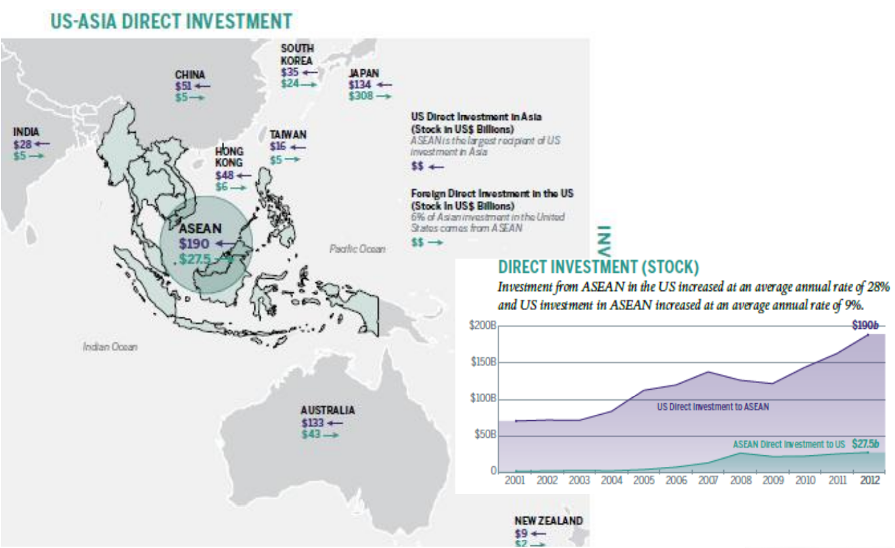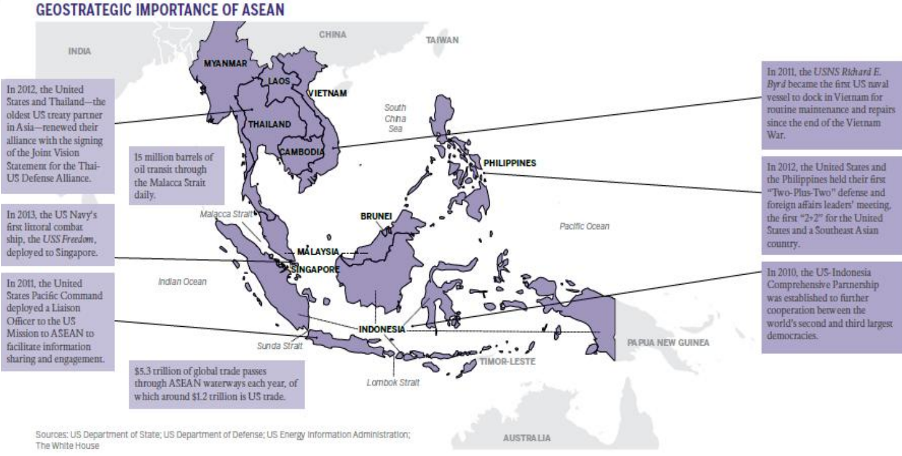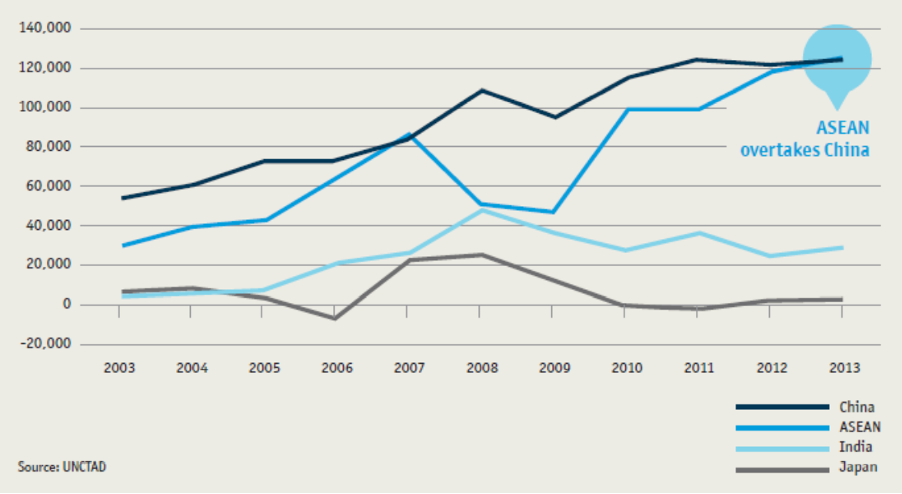The Association of Southeast Asian Nations (ASEAN) celebrates its anniversary on 8 August since the formation in 1967. What initially sets out to be an alliance conceived in 1961 as a security coalition against the spread of communism evolves later as a common front to promote political, economic, and social stability becomes a significant strategic economic bloc by 2021.
Since the 15th century, when Admiral Cheng Ho (郑和) sailed from Chuan Zhou (泉州) in Fujian (福建) province through South China sea to Southeast Asia, the maritime silk-route was established. Evolving from the period and foresight on China-ASEAN as an important economic region, the ASEAN-China Business Council was established in November 2001 making up of Chinese important entities of CCPIT, ASEAN-CCI, nationwide chambers of commerce and industry in ASEAN countries and renowned entrepreneurs in the region. This later spins off to the respective ASEAN-China Business Council at various countries across ASEAN. ASEAN is an important advocacy region as it represents the world largest Muslim, second largest Buddhist, and third largest Catholic and Christian communities of the world. ASEAN has stronger representation rights for the Islamic world than the middle east with its population. Combining with China, the region carries significant economic, political, and social weightage in the world.
Scoring the economic importance, In 2020 trade between China and the Association of Southeast Asian Nations (ASEAN) has skyrocketed by 85 times since the two sides established their dialogue relations 30 years ago. China has remained ASEAN’s largest trading partner for 12 consecutive years, ASEAN also became China’s largest trading partner.
Despite many international community perceptions that ASEAN as a remote far east region of the globe filled with developing countries, the reality is that ASEAN is a critical global sea lane located at the centre of world’s strongest economic growth area with $5.3b of global trade, 18 million of barrels of oil in transit and the largest oil storage via Singapore’s Jurong island.
From the US perspective, it is their largest investment in Asia of about $200b in ASEAN about five times and four times their investments in Japan and China respectively (see Diagram 1).
This is evident from US’s emphasis of ASEAN security with its various strategic collaborations with respective economies. For instance, in forging in 2010 the US-Indonesia Comprehensive Partnership which is a collaboration between 2nd and 3rd largest democratic economies, Philippines on “2+2 Defense” started in 2012, Joint Vision Statement with Thai-US Defense Alliance in 2012 (see Figure 2: GeoStrategic Importance of ASEAN).


If ASEAN is treated as a country, with the population of 670 million, ASEAN is the third largest in population size, fourth largest in GDP, and the fastest in FDI attraction overtaking China since 2013 (see Figure 3: ASEAN overtaking China in Foreign Direct Investments).
If we personify EU with its long history post second world and its union a glorious dame in her 60s, ASEAN is perceived as an energetic youth with its member countries with an average age of 23 (Vietnam) and 25 (Philippines) respectively. The rising middle-income earners and educated professionals, managers, engineering, and technicians (PMETS) has set the region to be a vibrant and exciting market exemplified by the number of telecoms subscribers as the 3rd largest in the world.

As a strategic and essential production base, ASEAN is the largest producer of Rubber and Palm oil in the world. Palm oil is omnipresent in over 50% of supermarket products from shampoo, soap, margarine, chocolate, lipsticks, bread, detergent. ASEAN is also the 2nd largest in rice production which is a major staple in the Asian world, and 3rd largest in the quintessential natural gas and coal. Sealing its competitive edge within China’s one-belt one-road alliance, ASEAN has the 3rd largest number of international flights, seaports and captivates some 3rd largest sea borne cargo volume, as well as total values of exports in the world.
Taking strategic position in the global air and sea connectivity, coupling with the oil, gas and energy supply, ASEAN has the potential to assert tremendous influence on global economy. And disruption or embargo in this part of the world will definitely impact the global supply chain and economic value chain.
Given this important connectivity, it is no wonder that both China and US views the stability of this region as a critical part of Global security policies.
China-ASEAN Business Alliance established from Singapore Ministry of Foreign Affairs conceived with Deputy Secretary General, S Pushpanathan (2008-2011) as founding member in 2013 attempting to reconcile these country chapters under a single alliance. China ASEAN Business Alliance (CABA) aspires to be bridge across the region of 11 countries for trades and investments collaboration.
In 2021, during the Covid period and new economic norm, CABA has repositioned itself with modern time as the strategic advocate for the region, thought leader to provide insights to important regional issues and capability building to promote business issues like infrastructure financing, sustainability and digital capabilities.

Victor Tay
Governing Council and CEO of China ASEAN Business Alliance
CEO of Global Catalyst Advisory
MD of Stout Investment Banking
victor.tay@caba.org.sg
Victor is the Managing Director within the Investment Banking group and is based out of Stout’s Singapore office focusing on Southeast Asia. His areas of expertise include corporate strategic development, market entry and expansion strategy, direct investment, M&A and corporate finance advisory, and transaction support. Victor lectures at the Civil Service College International and speaks regularly to the regional media on various topics on future trends, business issues, innovation and technology, growth strategies, market expansion, and mergers and acquisitions.
1 Paya Lebar Link, #06-08
PLQ 2 Paya Lebar Quarter
Singapore 408533
secretariat@caba.org.sg
This website uses cookies to improve your experience while you navigate through the website. Out of these cookies, the cookies that are categorized as necessary are stored on your browser as they are essential for the working of basic functionalities of the website. We also use third-party cookies that help us analyze and understand how you use this website. These cookies will be stored in your browser only with your consent. You also have the option to opt-out of these cookies. But opting out of some of these cookies may have an effect on your browsing experience.
This website uses cookies to improve your experience while you navigate through the website. Out of these cookies, the cookies that are categorized as necessary are stored on your browser as they are essential for the working of basic functionalities of the website. We also use third-party cookies that help us analyze and understand how you use this website. These cookies will be stored in your browser only with your consent. You also have the option to opt-out of these cookies. But opting out of some of these cookies may have an effect on your browsing experience.
Necessary cookies are absolutely essential for the website to function properly. This category only includes cookies that ensures basic functionalities and security features of the website. These cookies do not store any personal information.
Any cookies that may not be particularly necessary for the website to function and is used specifically to collect user personal data via analytics, ads, other embedded contents are termed as non-necessary cookies. It is mandatory to procure user consent prior to running these cookies on your website.